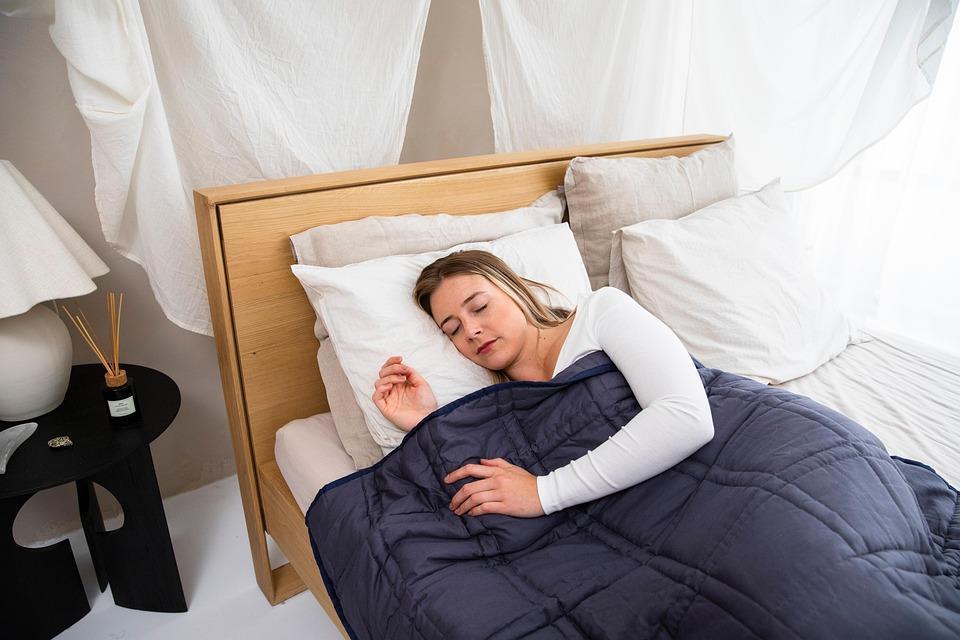Natural sleep aids can be your ticket to blissful slumber. If you’ve ever tossed and turned, staring at the ceiling while your mind races, you know how vital sleep is for your well-being. It’s not just about feeling rested; it’s about your mood, concentration, and overall health. Let’s dive into seven natural sleep aids that can help you reclaim those restful nights.
Contents
- Understanding Sleep and Its Importance
- 1. Melatonin: The Sleep Hormone
- 2. Valerian Root: Nature’s Tranquilizer
- 3. Chamomile: The Gentle Giant
- 4. Lavender: The Aromatic Sleep Inducer
- 5. Magnesium: The Relaxation Mineral
- 6. L-theanine: The Calming Amino Acid
- 7. Passionflower: The Soothing Herbal Remedy
- Creating Your Ideal Sleep Environment
- The Bottom Line
- FAQs
Understanding Sleep and Its Importance
Sleep isn’t just a luxury; it’s a necessity. It’s during those quiet hours that your body repairs itself, your brain processes information, and your emotions stabilize. Chronic sleep deprivation can lead to serious issues like anxiety, depression, and a weakened immune system. Recognizing this, many are turning to natural solutions rather than relying solely on medications that can come with unwanted side effects.
1. Melatonin: The Sleep Hormone
Melatonin is a hormone that your body produces naturally, but sometimes it needs a little boost. It regulates your sleep-wake cycle, signaling your body when it’s time to wind down.
- Benefits: Melatonin can help you fall asleep faster and improve sleep quality.
- How to Use: Typically, a dose of 0.5 to 5 mg taken about 30 to 60 minutes before bedtime can be effective.
Check out the National Center for Complementary and Integrative Health for more information on melatonin and its uses.
2. Valerian Root: Nature’s Tranquilizer
Valerian root has been used for centuries to treat insomnia and anxiety. Its calming properties can help relax your mind and body, making it easier to drift off.
- Benefits: Reduces the time it takes to fall asleep and enhances sleep quality.
- How to Use: You can take it as a tea or in supplement form. A typical dose ranges from 300 to 600 mg.
For research on valerian root’s effectiveness, visit WebMD.
3. Chamomile: The Gentle Giant
Chamomile is often thought of as a gentle sleep aid, and for good reason. This lovely flower has calming effects that can soothe your nerves and help you unwind.
- Benefits: Promotes relaxation and can help you fall asleep faster.
- How to Use: Brew a cup of chamomile tea about an hour before bed.
Learn more about the benefits of chamomile at Healthline.
4. Lavender: The Aromatic Sleep Inducer
Lavender isn’t just a pretty scent; it’s a powerful natural sleep aid. Its soothing aroma can calm your mind and promote a sense of peace.
- Benefits: Reduces anxiety and improves overall sleep quality.
- How to Use: Use essential oils in a diffuser, sprinkle lavender sachets in your pillow, or take a warm lavender-infused bath.
For a deeper dive into lavender’s benefits, check out Mayo Clinic.
5. Magnesium: The Relaxation Mineral
Magnesium plays a crucial role in nerve function and muscle relaxation. When your body is low in magnesium, it can lead to restlessness and sleep disturbances.
- Benefits: Helps to calm the nervous system and promotes deeper sleep.
- How to Use: You can take magnesium supplements or increase your intake through foods like spinach, nuts, and whole grains.
For comprehensive insights on magnesium, visit the National Institutes of Health.
6. L-theanine: The Calming Amino Acid
L-theanine is an amino acid found in tea leaves, especially green tea. It promotes relaxation without making you drowsy, which is perfect for those who struggle with racing thoughts.
- Benefits: Increases relaxation and improves sleep quality.
- How to Use: A dose of 100 to 200 mg is generally effective.
Explore more about L-theanine on Cleveland Clinic.
7. Passionflower: The Soothing Herbal Remedy
Passionflower has been used in traditional medicine for its calming effects. It’s particularly effective for those dealing with anxiety that interferes with sleep.
- Benefits: Helps reduce anxiety and increases sleep duration.
- How to Use: Available as a tea, tincture, or supplement. A typical dose is about 500 mg.
You can find more details about passionflower at WebMD.
Creating Your Ideal Sleep Environment
Using natural sleep aids can be incredibly effective, but don’t forget about your sleep environment. Here are some tips to enhance your sleep sanctuary:
- Keep it Dark: Use blackout curtains to block out light.
- Control Temperature: A cooler room often leads to better sleep.
- Limit Noise: Consider earplugs or a white noise machine.
- Comfort is Key: Invest in a good mattress and pillows.
The Bottom Line
Natural sleep aids can be your allies in achieving restful nights. From melatonin to passionflower, there’s a solution waiting for you. Remember that it’s essential to listen to your body and consult a healthcare provider before starting any new supplement.
As you explore these natural options, don’t forget the importance of creating a calm sleep environment. Your journey to better sleep starts now—embrace it!
FAQs
Q: How long does it take for natural sleep aids to work?
A: It varies by individual and the specific aid, but many can begin to take effect within 30 to 60 minutes.
Q: Are there any side effects?
A: Most natural sleep aids are generally safe, but it’s essential to consult with a healthcare provider, especially if you’re on other medications.
Q: Can I combine different sleep aids?
A: It’s best to consult with a healthcare provider before combining different natural sleep aids to avoid potential interactions.
Embrace the journey to restful nights. Your body and mind will thank you!
Get Your FREE Natural Health Guide!
Subscribe now and receive our exclusive ebook packed with natural health tips, practical wellness advice, and easy lifestyle changes, delivered straight to your inbox.





